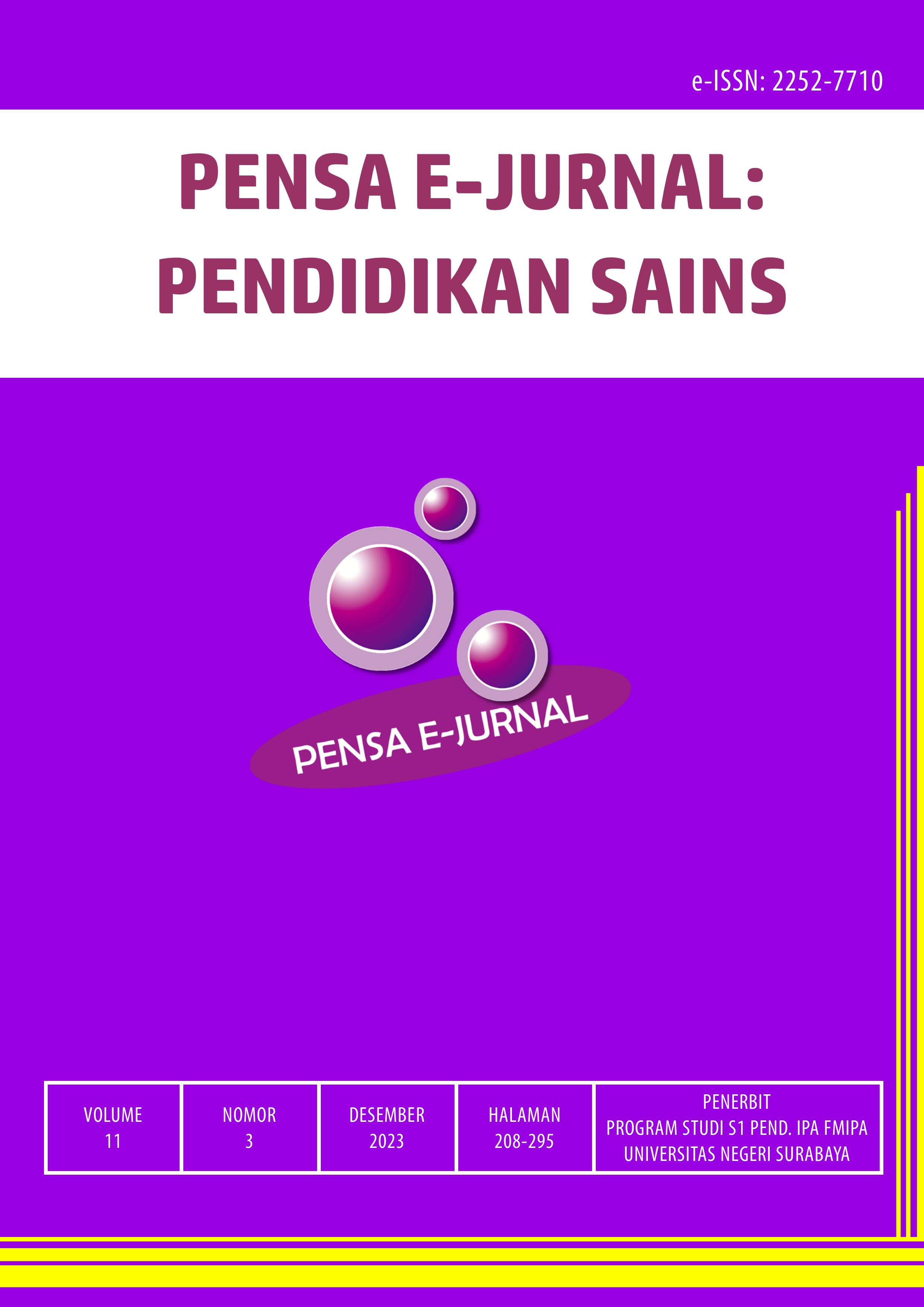MEMBANGUN KETERAMPILAN BERPIKIR KRITIS SISWA MELALUI CASE BASED LEARNING PADA MATERI GETARAN
DOI:
https://doi.org/10.26740/pensa.v11i3.54375Keywords:
Case Based Learning (CBL), critical thinking skills, oscillationAbstract
This research aimed to describe the improvement of students' critical thinking skills after applying Case Based Learning (CBL) model. The research method used in this study is quantitative research with a pre-experimental design approach (one group pretest and posttest) with the aim of providing treatment to one experimental group without a control group. Furthermore the data was analyzed using normalized gain to see the increase in students' pre-test and post-test. The results of the analysis show that the students' critical thinking skills test results increased by 0.78 so that they obtained the high criteria.
Downloads
Downloads
Published
How to Cite
Issue
Section
 Abstract views: 382
,
Abstract views: 382
, PDF Downloads: 468
PDF Downloads: 468

















